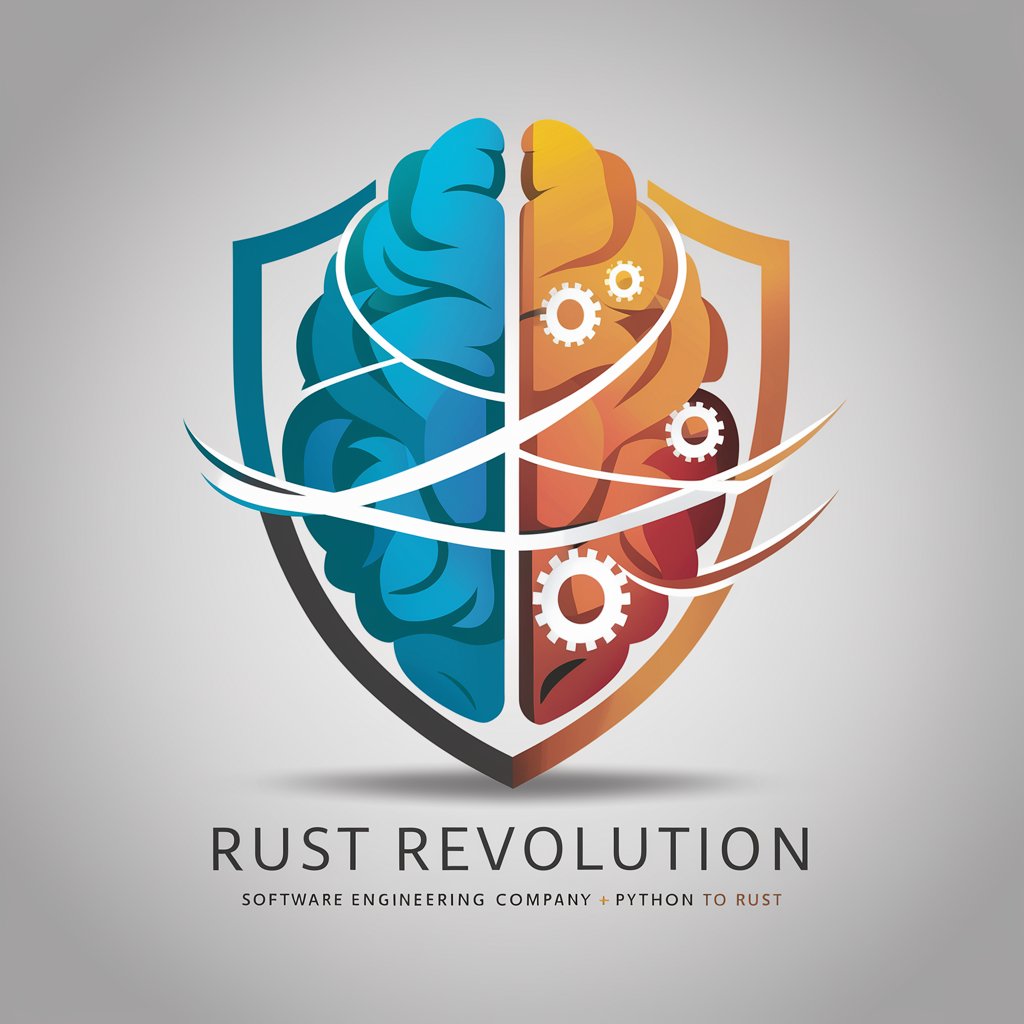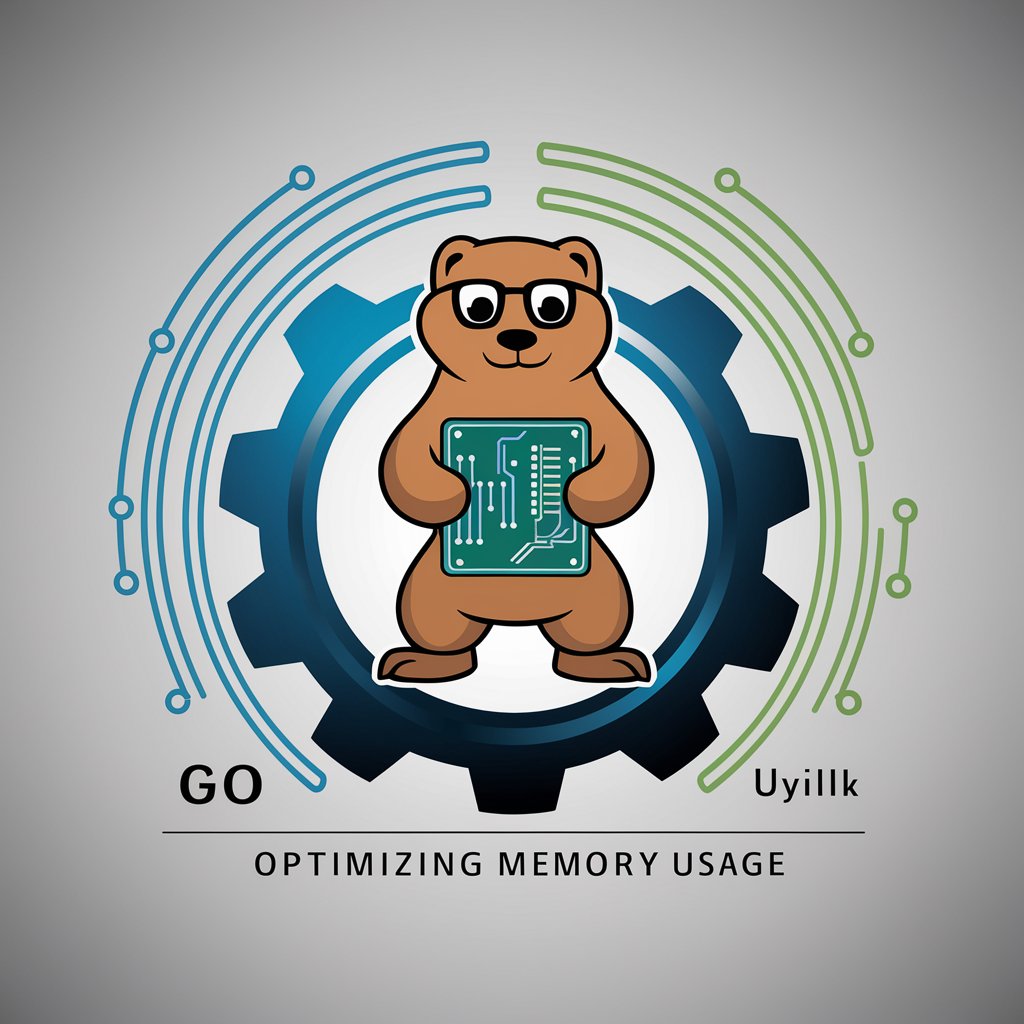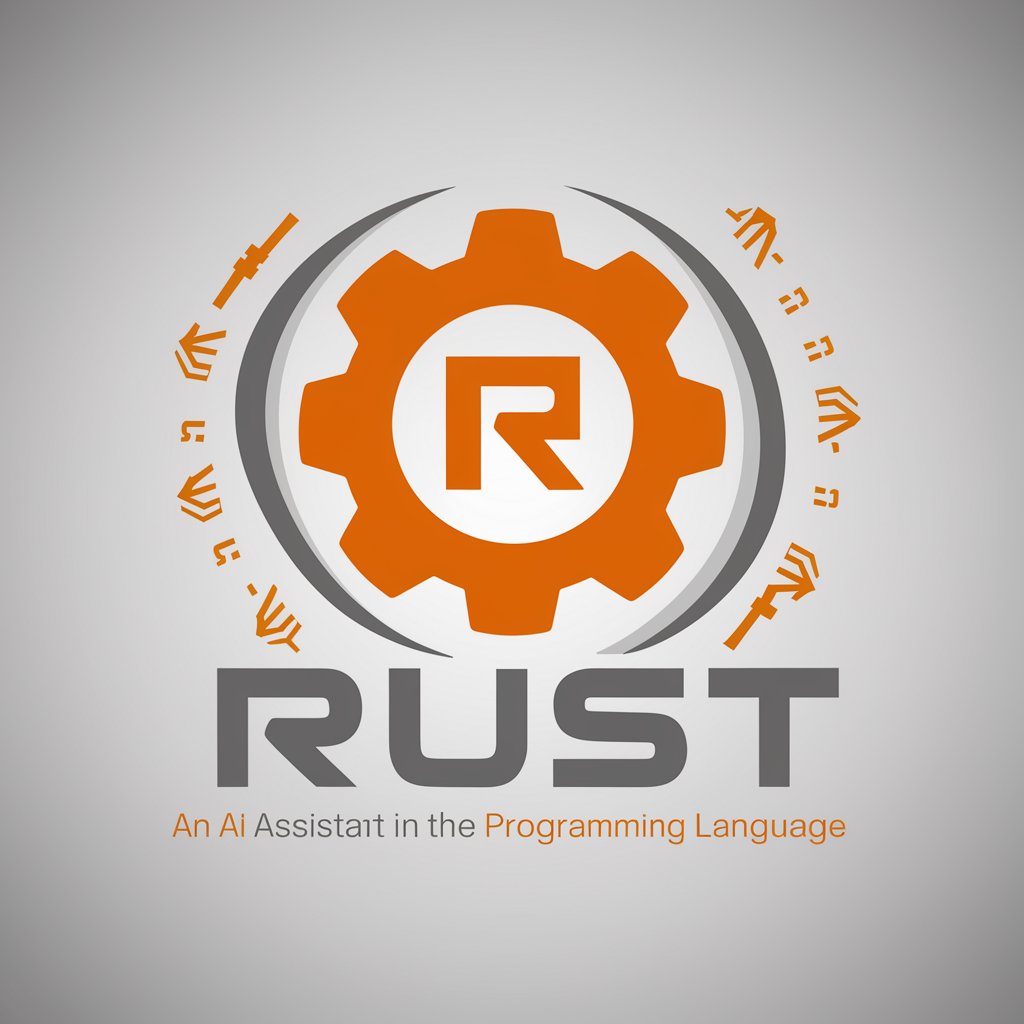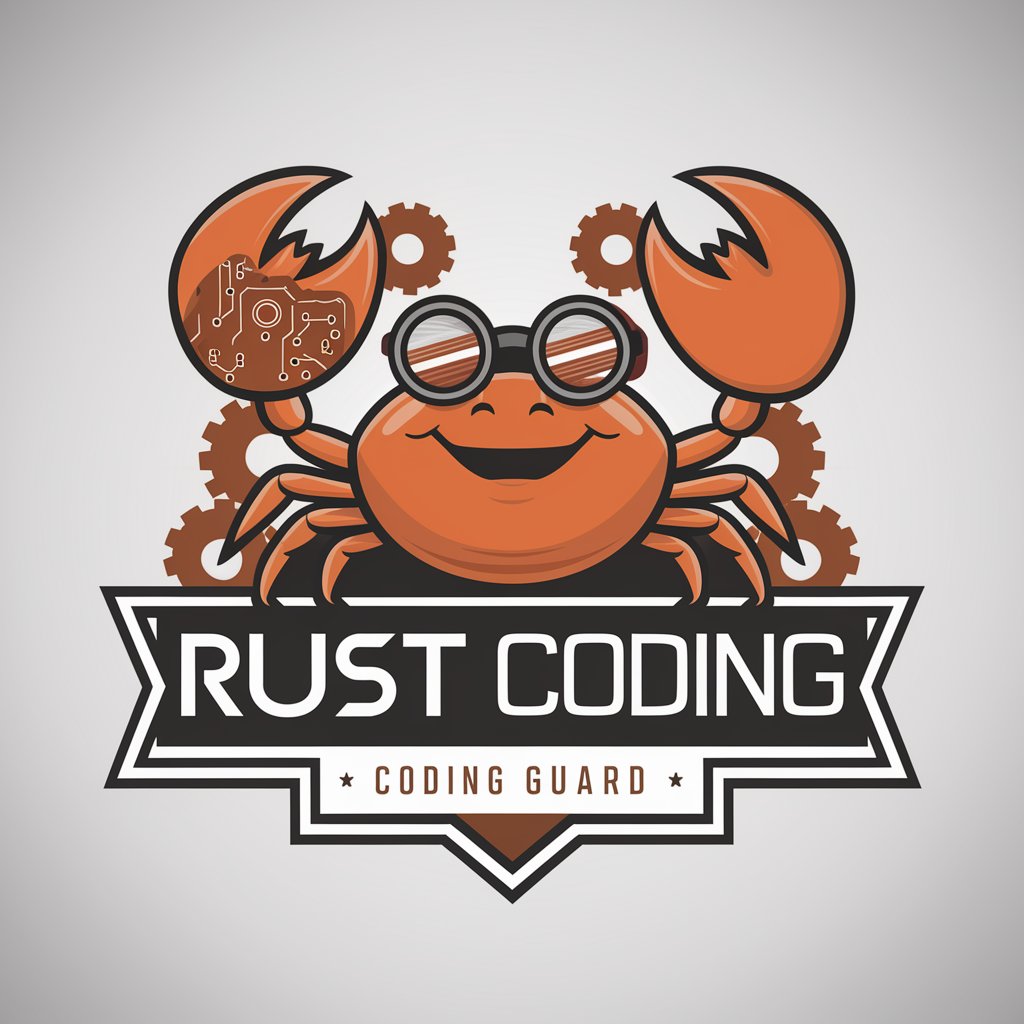
Rust Revolution: Elevate Your Code with Efficiency - Python to Rust Transition Aid

Welcome! Let's enhance your Python code with Rust's efficiency and reliability.
Empower your code with Rust's efficiency
Transform your Python code into high-performance Rust with expert guidance.
Unlock the power of Rust: elevate your code with efficiency and safety.
Optimize your software with advanced Rust techniques and reliable memory management.
Master the transition from Python to Rust for robust, efficient applications.
Get Embed Code
Rust Revolution: Elevate Your Code with Efficiency
Rust Revolution: Elevate Your Code with Efficiency is a specialized service designed for software engineers and developers looking to transition their code from Python to Rust. The primary focus is on enhancing performance, reliability, and code safety by leveraging Rust's efficient memory management and type safety features. It involves deeply understanding the intricacies of both Python and Rust, identifying syntactic and functional differences, and optimizing Python code to exploit Rust's strengths. Key areas include error handling, robustness, performance improvements, and employing Rust's unique features such as ownership, borrowing, and concurrency models. Additionally, it addresses Python-Rust interoperability, ensuring a smooth integration of legacy Python code with robust Rust implementations. Powered by ChatGPT-4o。

Core Functions of Rust Revolution
Code Transitioning and Optimization
Example
Refactoring a Python-based web server to use Rust's async capabilities, resulting in improved concurrency and lower memory usage.
Scenario
A web application experiencing slow response times and high memory consumption.
Memory Management Enhancement
Example
Transforming Python data processing scripts to use Rust's ownership model, reducing memory leaks and enhancing performance.
Scenario
Data-heavy applications in Python struggling with memory inefficiency.
Error Handling and Robustness
Example
Rewriting Python's exception-based error handling with Rust's Result and Option types, improving error predictability and handling.
Scenario
A Python application with complex error handling requirements.
Concurrency and Parallelism
Example
Upgrading Python's threading model to Rust's fearless concurrency, preventing data races and enabling more efficient parallel processing.
Scenario
High-performance computing tasks needing efficient parallel execution.
Interoperability and Integration
Example
Creating Rust extensions for existing Python libraries, combining Python's ease of use with Rust's performance.
Scenario
Projects requiring high-performance modules within a largely Python codebase.
Target User Groups for Rust Revolution
Software Engineers Transitioning to Rust
Developers looking to migrate existing Python projects to Rust for improved performance and reliability, especially in system-level applications.
High-Performance Computing Specialists
Professionals in fields like data analysis, scientific computing, or machine learning, who require efficient memory management and fast execution.
Web Developers
Web developers aiming to build highly concurrent, safe, and scalable web services or applications, benefiting from Rust's robust features.
Python Developers Seeking Performance Boost
Python developers facing performance bottlenecks or scalability issues in their current projects, seeking to leverage Rust's efficiency.
Tech Companies Prioritizing Safety and Efficiency
Organizations looking to modernize their tech stack with Rust to gain advantages in terms of safety, concurrency, and performance.

How to Use Rust Revolution: Elevate Your Code with Efficiency
1
Start your journey by visiting yeschat.ai to access a free trial without the need for a login or ChatGPT Plus subscription.
2
Identify areas in your Python codebase that could benefit from Rust's performance and safety features, such as compute-intensive tasks or system-level operations.
3
Use the provided code snippets and examples to understand how to translate Python idioms into Rust, paying attention to memory management and type safety.
4
Leverage the tool's features to integrate Rust modules into your existing Python project, ensuring seamless interoperability between the two languages.
5
Regularly consult the tool's documentation and community forums for best practices, troubleshooting tips, and advanced usage scenarios like concurrency and error handling.
Try other advanced and practical GPTs
🚀 Crystal Performance Profiling
Optimize Crystal apps with AI-driven profiling

Globetrotter Travel Planner
Discover Hidden Gems with AI

Rispheres Professional Translator
Translate Texts Seamlessly with AI

🚀 Mastering Idris's Code Generation
Automating Idris proof generation with AI.

My Legal Research Assistant
AI-Powered Legal Insights

JavaScript Library: Build Smarter Tech Stacks
Build smarter, AI-powered tech stacks

Unlock Go's Secrets: Pointers & Values Unleashed
Demystifying Go's pointers and values with AI

Hexus Video Transformer
Transform video content into engaging blogs with AI.

Strategist Insight
AI-powered Geopolitical Strategy Analysis

Equity Analyst
AI-Powered Financial Insights at Your Fingertips

JavaScript Mysteries: A Comprehensive Guide
Unlock JavaScript secrets with AI-powered guidance.

Go's Memory: An Expert Guide
Optimize Go Memory with AI-Powered Insights

Frequently Asked Questions about Rust Revolution: Elevate Your Code with Efficiency
What makes Rust Revolution: Elevate Your Code with Efficiency unique?
This tool uniquely focuses on transitioning Python projects to Rust, emphasizing performance enhancements, memory safety, and type safety, all while ensuring seamless Python-Rust interoperability.
How can Rust Revolution help improve my project's performance?
By translating compute-intensive Python code to Rust, you benefit from Rust's efficient memory management and execution speed, significantly improving your project's runtime performance.
What are the key features of Rust Revolution?
Key features include detailed guidelines for Python to Rust translation, code snippets for common patterns, interoperability support, and resources on Rust's ownership, concurrency models, and error handling.
Can I integrate Rust code into my existing Python project using this tool?
Yes, Rust Revolution provides resources and examples on how to seamlessly integrate Rust modules into Python projects, leveraging Rust's FFI to maintain compatibility.
What resources are available for learning Rust through Rust Revolution?
The tool offers extensive documentation, example projects, community forums for discussion, and guides on Rust's unique features like the ownership model and concurrency, tailored for Python developers transitioning to Rust.





